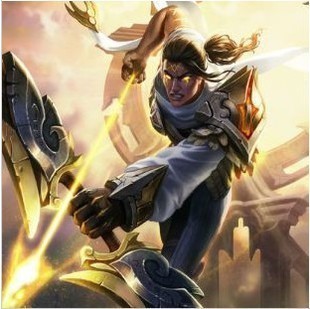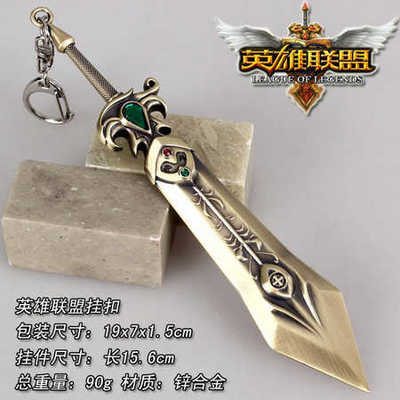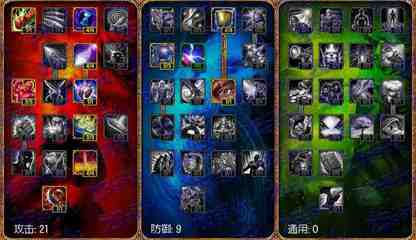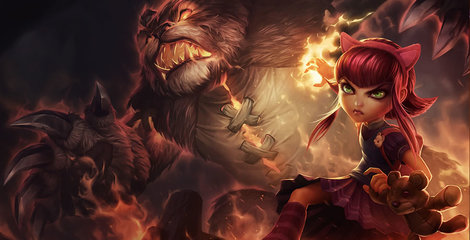我若为王If I WereKing
聂绀弩Nie Gannu
在电影刊物上看见一个影片的名字:《我若为王》(1)。Recently in a movie magazine I came across thetitle of a film: If I Were King.从这影片的名字,我想到
和影片毫无关系的另外的事(2)。It has
put me in mine of somethingentirely foreign to film in question.我想,自己如果作了王,这世界会成为一种怎样的光
景呢?I wonder whatwould
become of this world if Imyself were king.这自然是一种完全可笑的幻想,我根本不想作王(3),也根本看不起王,This is of course a ridiculous fancy, for beinga
king is the last thing Iaspire to and also a thing I utterly despise.王是什
么东西呢?What the hell is aking?
难道我脑中还有如此封建的残物么?How canI still be so feudalistic in my mind?而且真想作王的人,他将用他的手去
打天下,决不会放在口里说的。Moreover,if one is really bent on being a
king, he will try to carryout his design by deeds instead of by words.但是假定又假定,我若为王,这个世界会成为一种怎
样的光景?But, to putit
hypothetically, suppose Iwere king, what would this world look like?
我若为王,自然我的妻就是王后了。If Iwere king, my wife would of course be queen.我的妻的德性,我不怀疑,为王后只会有余
的。With all her moralexcellence, of
which I make no doubt, shewould be more than qualified for being a queen.但纵然没有任何德性,纵然不过是个娼妓,那时候,她也仍旧是王后。But even if
she had no virtue to speakof, or were just a whore, she would be queen all thesame.
一个王后
是如何地尊贵呀,会如何地被人们像捧着天上的星星一样捧来捧去呀,Imagine how noble and dignified a queen would be and howpeople would keep lauding
her to the skies likemad!假如我能够想
像,那一定是一件有趣的事情。It isindeed great fun for me to visualize all of this.
我若为王,我的儿子,假如我有儿子,就是太子或王子了。If I were king, my son, if any, would be crown prince orprince.我并不以为我的儿子
会是一无所知,一无所能的白痴(4),I don’t think my son
will be ignorant orworthless in every way like an idiot.但纵然是一无所知一无所能的白痴,也仍旧是太
子或王子。But, even if thatwere not the case,
he would still be crownprince or prince.一个太子或王子中如何地尊贵呀,会如何被人们像捧天上的星星一样地捧
来捧去呀。Imagine how nobleand dignified a crown prince
or prince would be and howpeople would keep lauding him to the skies likemad!假如我能想像,倒是件不是没有趣味的事。It is
indeed great fun for me tovisualize all of this.
我若为王,我的女儿就是公主,我的亲眷都是皇亲国戚。If I were the king, my daughters would be princess, and myrelatives by marriage
would all become members ofthe royal family.无论他们怎样丑陋,怎
样顽劣,怎样……(5)也会被人们像捧天上的星星一样地捧来捧去,因为她们是贵人。No matter how ugly or perverse orwhatnot
they were, people would keeplauding them to the skies like mad just the same because
they weredignitaries.
我若为王,我的姓名就会改作:“万岁”,我的每一句话都成为:“圣旨”。 If I were king, I would be addressed as “YourMajesty” and every word of mine
would become a “royaledict”.我
的意欲,我的贪念,乃至每一个幻想,都可竭尽全体臣民的力量去实现,即使是无法
实现的。All my subjectswould leave no stone unturned to carry
out every will, everyavaricious desire and even every whim of mine, even thoughthey
were all beyond thepossible.我将没有任何过失,因为没有人敢说它是过失;我将没有任何罪行,因为没
有人敢说它是罪行。I would do nowrong simply because no one dared to call it a
wrong. I would commit nocrime simply because no one dared to call it acrime.没有人敢呵斥我,指摘我,除非把我从王位上赶下来。但是赶下
来,就是我不为王了。Noone
would dare to berate or findfault with me unless I was removed from the throne,which
meant that I was no longerthe king.我将看见所有的人们在我面前低头,鞠躬,匍匐(6),连同我的
尊长,我的师友,和从前曾在我面前昂头阔步耀武扬威的人们。I would see all people hang their heads, bow lowor
prostrate themselves at myfeet, including my respected elders, teachers, friends andeven
those who had used toswagger arrogantly in front of me.我将看不见一个人的
脸,所看见的只是他们的头顶或帽盔。I couldsee none of their faces;
all I could see were thetops of their heads or hats or helmets on theirheads.或者所能看见的脸都是谄媚的,乞求的,快乐
的时候不敢笑,不快乐的时候不敢不笑,悲戚的时候不敢哭,不悲戚的时候不敢不哭
脸。The onlyfaces
I could see would beingratiating or supplicating – faces that dared not smile toexpress joy;
faces that dared not refrainfrom a forced smile when there was no joy at all to justifya
smile; faces that dared notcry to express sorrow; faced that dared not refrain froma
feigned cry when there wasno sorrow to justify a cry.我将听不见人们的真正的声音,I could hear no true voices of my
people.所能听见的都是低微的,柔婉的,畏葸(7)的和娇
痴的,唱小旦的声音:“万岁,万岁!万万岁!”All I could hear would be the feeble, soft, timid andaffected voice, like that of a
female Peking opera singer,chanting, “Long live the King!”这是他们的全部语言。“有道明君!
伟大的主上啊!”that would betheir language
in toto. “Great is the King,our enlightened lord!”这就是那语言的全部内容。That would be the sole content of their
language.没有在我之上的人了,没有和我同等的
人了,There would be no oneabove me or on an equal footing with me.我甚至会感到单调,寂寞和孤独。
为什么人们要这样呢?为什么要捧我的妻,捧我的儿女和亲眷呢?Why would people behave like that? Why would they flattermy wife, my children
and myrelatives?因为我是王,
中他们的主子,我将恍然大悟:我生活在这些奴才们中间,连我所敬畏的尊长和师友
也无一不是奴才,而我自己不过是一个奴才的首领。Because I was king, their master. It would suddenly dawn onme that
living among these flunkeys,including my esteemed elders, teachers and friends, Imyself,
too, was nothing but a merehead flunkey.
我是民国的国民,I am the citizen of theRepublic.民国国民的思想和生活习惯使我深深地憎恶一切奴才或奴才相
(8),连同敬畏的尊长和师友们。Being accustomed to the mode of thinking andliving
of a republican citizen, Iwould deeply abhor all servility and flunkeys, includingmy
esteemed elders, teachersand friends.请科学家们不要见笑,Dear scientists, please don’t laugh atme.我以为世界之所以还有待于改
进者(9),全因为有这些奴才的缘故。生活在奴才们中间,作奴才们的首领,我将引为
生平的最大耻辱,最大的悲哀。Methinks
the world is very much inneed of reform simply because of the presence of theseflunkeys,
I would regard it as thedeepest disgrace and sorrow of my life to live among theflunkeys
and become theirchief.我将变成一个暴君,或者反而是明君;我将把我的臣
民一齐杀死,连同尊长和师友,不准一奴种留在人间。I would rather become a tyrant or an enlightened king sothat I
could kill off all mysubjects, among them my respected elders, teachers and friends,and
have the flunkey speciesexterminated once for all.我将没有一个臣民,我将不再
是奴才们的君主。Then, with allmy subjects gone, I
would no longer be the kingof flunkeys.
我若为王,将终于不能为王(10),却也真地为古今中外最大的王了。If I were king and ultimately ended up becoming noking at all, I would indeed be the
greatest king that had everbreathed since time immemorial. “万岁,万
岁,万万岁!”我将和全世界的真的人们一同三呼。
I would join true peopleall
the world over in givingthree cheers for myself.
注释:
《我若为王》是中国现代杰出杂文家聂绀弩(1903-1986)写于1941年的一篇杂文,文字通俗易懂,内容讽刺辛辣,流露了对专制统治者和奴才的蔑视。
(1)“我若为王”译为If I Were King,其中King的前面省略了冠词a 。在职位、头衔、等级等的名词前面大多不用冠词a 或an。
(2)“和影片毫无关系的另外的事”译为something entirely foreign to the film inquestion ,其中foreignto为成语,作having no relation to 或unconnectedwith解。又in question 是添加成分,作being talkedabout(正在讨论的)解。
(3)“我根本不想为王”译为being a king is the last thing I aspireto,其中last 一词作least likely或mostunlikely(最不可能的)解。
(4)“一无所知,一无所能的白痴”译为ignorant or worthless in every way like anidiot,其中in every way作“完全”或“彻头彻尾”解。
(5)“无论他们怎样丑陋,怎样顽劣,怎样……”中的最后一个“怎样”意即“诸如此类的事”或“等等”,现译为or whatnot。英语whatnot作other such things解,为what may not say? 的省略。
(6)“匍匐”在此指俯伏或拜倒动作(表示顺从),现译为prostrate。
(7)“畏葸”做“胆怯”解,现译为timid。
(8)“奴才相”译为servility。英语servility意即slavishness或slave-like deference。
(9)“我以为世界之所以还有待于改进者”译为Methinks the world is very much in need ofreform,其中Methinks等于I think或It seems to be,为无人称动词,本为古体词,现常作诙谐打趣用语。
(10)“我若为王,将终于不能为王”译为If I were king and ultimately ended up becoming noking at all,其中ended up是成语,作“告终”解。例如:He never dreamed that he would end up owning sucha big fortune.
父亲
鲁彦Father
Lu Yan
“父亲已经上了六十岁了,还想作一点事业,积一点钱,给我造起屋子来(1)。”
一个朋友从北方来,告诉了我这样的话。“Father is now over sixty, but he still wants to work tosave up for a house to be built
for me,” a friend of minefrom North China told me.
他的话使我想起了我的父亲(2)。That put me in mind of myfather.我的父亲正是和他的父亲完全一样的。My father was very much like his.
我的父亲曾经为我苦了一生,Father wentthrough untold hardships for me all his life.把我养大,送我进学校,为我造了屋子,买了几亩
田地。He brought me up,sent me to
school, had a house builtfor me and bought me a few mu of land.六十岁那一年,还到汉口去做生意,He went to Hankou to
engage in trade the yearwhen he was already sixty.怕人家嫌他年老,只说自己五十几岁(3)。And he tried to make out that he was
still in his fifties lestpeople should consider him too old to be of much use.
大家都劝他不要再出门,他偏背着包裹走了。Wehad all
tried to dissuade him fromgoing out to Hankou, but he simply wouldn’t listen andleft
home carrying the luggage onhis back.
“让我再帮儿子几年(4)!”他只是这样说。“Let me toil a few more years for my son’s sake!”That was what he said.
后来屋子被火烧掉了,It happenedafterwards that the house was burned down.他还想再做生意,把屋子重造起来。And he wanted to go back to
his business in order tohave the house rebuilt.我安慰他说,三年以
后我自己就可积起钱造屋了(5),还是等一等吧。I tried to console him, saying that therewas
no need for him to do itbecause in three years’ time I myself would have laid byenough
money for a newhouse.他答应了。He agreed.他给我留下了许多造屋的
材料,告诉我这样可以做什么那样可以做什么。Then he gave me a lot of building materials andtold
me what to do withthem.他死的以前不久,还对我说:
“早一点造起来吧,我可以给你监工(6)。”Shortly before his death, he urged me,
“You’d better getstarted right away so that I can watch to see that everything isdone
properly.”
但是他终于没有看见屋子重造起来就死了。Unfortunately he didn’t live long enough to see the newhouse.他弥留的时候对我说,一切都满足了。He told me on his
deathbed that had nothing tofeel sorry about.
但是我知道他倘能再活几年,我把屋子造起来,是他所最心愿的。But I knew he would be much happier if he
could live a few more yearsjust to see the new house put up.我听他弥留时的呻
吟和叹息。我知道他还想再活几年,帮我造起屋子来。When I heard his dying
groans and sighs, I believedthey were caused not by physical pain, but by regret fornot
being able to live a fewmore years to help me with the new house.
现在我自己已是几个孩子的父亲了。Now Imyself am a father of several children.我爱孩子,但我没有像前一辈父亲的想法,
帮孩子一直帮到老,帮到死还不足。Though Ilove my kids, I do not share
the idea of father andpeople of his time that one can never do too much in his lifetimeto
help hischildren.我赞美前一辈父亲的美德,而自己却不跟着他们
的步伐走去。Much as I admirefather and people of his time for their moralexcellence,
I can never follow in theirfootsteps.
我觉得我的孩子累我,使我受到极大的束缚。我没有对他们永久的计划,甚至连
短促的也没有。I think of mychildren as an encumbrance to me I haven’t worked out a long-termplan
for them, nay, not even ashort-term one.
“倘使有人要,我愿意把他们送给人家!”“I’dlike to give away my kids to anyone who’s willing to takethem!”我常常这样说,当我厌恶孩子的时候。That’s what I
say whenever I am fed upwith them.
唉,和前一辈做父亲的一比,我觉得我们这一辈生命力薄弱得可怜,Alas, compared with father and people of his time, thepresent generation, I think,
have pitifully lowvitality.我们二三十
岁的前辈,他们虽然老的老死的死了,We inour twenties or thirties cannot compare with our eldersin
their sixties orseventies.但是他们才是真正活着到现在到将来。Today they may be advanced in years or even nomore, but they
will, nevertheless, liveforever and ever.
而我们呢,虽然活着,却是早已死了。 As forus, though still alive, we have long been dead.
注释
《父亲》是我国近代优秀作家鲁彦(1901-1944)写的一篇散文。文章追述父亲为儿子劳碌一生,是对父爱的赞颂。原文风格朴素,英译时文字也应力求通俗。
(1)“积一点钱,给我造起屋子来”译为to save up for a house to be built forme,其中to save up
for是成语,作“为……而把钱存起来”解。
(2)“他的话使我想起了我的父亲”译为that put me in mind of myfather等于That reminded me
of myfather。To put one in mind of,,,是成语。
(3)“只说五十几岁”译为tried to make out that he was still in hisfifties,其中to make out是成
语,作“声称”或“假装”等解。
(4)“让我再帮儿子几年!”译为:Let me toil a few more years for myson’s sake!如把原文中的“帮”字直译为help,则欠达意。
(5)“就可积起钱造屋了”译为would have laid by enough money for a newhouse,其中laid by
是成语,作“积蓄”解。
(6)“早一点造起来吧,我可以给你监工。”如逐字硬译为Let the construction of the house get
started as soon as possible so that I can overseethe work for you则欠口语化。现用意译法灵活处理为You’d better get started right away so that I canwatch to see that everything is done properly。
枣 核
萧乾Date Stones
Xiao Qian
动身访美之前,一位旧时同窗写来航空信,再三托付我为他带几棵生枣核(1)。Before I set out for the US, a former schoolmateof mine wrote me by airmail, asking
me in all earnest to bringhim some raw date stones.东
西倒不占分量,可是用途却很蹊跷。Theywere not heavy in weight, yet I
was curious about theiruse.
从费城出发前,我们就通了电话。AtPhiladelphia, shortly before staring out for my friend’s place, Icalled him up.一下车,他已经在站上等了。So
when I got off the train atthe destination, I found him already waiting for me at thestation.
掐指一算,分手
快半个世纪了,现在都已是风烛残年。It wasabout half a century since we last met, and we were now both in ourdeclining years.
拥抱之后,他就殷切地问我:“带来了吗?”After hugging each other, he asked me eagerly, “have youbrought them with you?”我赶快从手提包里掏出那几棵枣核I
immediately fished out thedate stones from my handbag.
(2)。他托在掌心(3),像比珍珠玛瑙还贵重。He fondled them in his palm as if
they were something morevaluable than pearls or agates.
他当年那股调皮劲显然还没改。我问起枣核的用途,他一面往衣兜里揣,一面故
弄玄虚地说(4):“等会儿你就明白了。”Obviously he was just as childlike as before, whenI asked about the use of the date
stones, he put them into hispocket and replied by way of fooling me deliberately,“You’ll
understand soon.”
那真是座美丽的山城,It was reallya beautiful mountain city.汽车开去,一路坡上坡下满是一片嫣红。As we drove on, an expanse of rich crimsonup
and down the slope came intosight.倘若在中国,这
里一定会有枫城之称。In China aplace like this would have been described
as a maplecity.过了几个山坳,他朝枫树丛中一座三层小楼指了指说:“喏,
到了。”After passingthrough several cols, my friend said pointing to athree-
storied house amidst themaple trees, “here we are.”汽车拐进草坪,离车库还有三四米,车库就像认识主人似的自动掀起。The car turned into a lawn and when it
was three or four metersaway form the garage, its door automatically opened as ifit
recognized its ownmaster.
朋友有点不好意思地解释说,买这座大房子时,孩子们还上着学,My friend looked somewhat ill at ease when he told me this:At the time he bought
this big house, his childrenhad all been at school.如今都成家立
业了。Now they had theirown homes and jobs.
学生生物生物化学的老伴儿在一家研究所里做营养试验。His wife, a biochemist, was a dietician at a researchinstitute.
他把我安顿在二楼临湖的一个房间后,就领我去踏访他的后花园(5)。地方不大,
布置得却精致匀称(6)。After assigning me a room on the second floorfacing a lake, he showed me around
his back garden, which,though not too big, was exquisite and nicelyarranged.我们在靠篱笆的一张白色长凳上坐下,他劈头就问我:“觉不
觉得这花园有点家乡味道?”The
moment we sat down on awhite bench close to a hedge, he asked me, “Don’t youfind
something here smacking ofour native place in China?”经他指点,我留意到台阶两旁是他手栽的两株垂杨柳,
草坪中央有个睡莲池。at this, Inoticed a weeping willow,
planted by himself, oneither side of a flight of steps as well as a water-lily pond inthe
middle of thegarden.他感慨良深地对我说:“栽垂柳的时候,我那个小子才五岁,He said with deep feeling, “When I planted thewillows, my son was
only five.
如今在一条核潜艇上当总机械长了。Now heserves as head of chief mechanics in a nuclearsubmarine.姑娘在哈佛教书。My daughter
teaches at HarvardUniversity家庭和事业都如意,I’m happy with my family and mycareer.各种新式
设备也都有了。I own allmodern
household facilities Ineed.可是我心上总像是缺点什么。. But I still feel somethinglacking.也许是没出息(7),Maybe I’m a bit too foolish.
怎么年纪越大,思乡
越切。How come the older Ibecome, the more I think of my homeland.我现在可充分体会出游子的心境了。Now I fully understand
the frame of mind of oneresiding in a place far away from home.我想厂甸,想隆福寺。I always think of
Changdian andLongfusi.这里一过圣诞,我
就想旧历年。Every timeChristmas is celebrated here in America, I think of
lunar New year back inChina.近来,我老是想总布胡同院里那棵枣树。I can never forget the date tree in the courtyardof the house
on ZongbuHutong.所以才托你带几棵种籽,That’s why I’ve asked you to bring me some datestones试种
一下。”. I’ll tryto
plant them here.
接着,他又指着花园一角堆起的一座假山假山石说(8):“你相信吗(9)?那是我开
车到几十里以外,一块块亲手挑选,论公斤买下(10),然后用汽车拉回来的。Then he said pointing to a jumble of rockerystanding in a corner of the garden,
“Believe it or not, therocks, hand-picked by me, were bought by the kilogram. Idrove
dozens of kilometers away tohaul them back in my car.那是我
们家的‘北海’。” Look, that’sBeihai in our home.”
说到这里,我们两人都不约而同地站了起来。沿着草坪旁用卵石铺成的小径,走
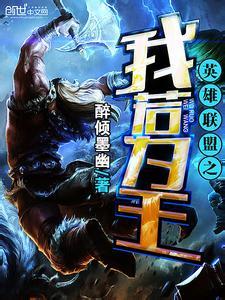
到“北海”跟前(11)。Thereupon, we rose to our feet simultaneously andwalked along a cobbled footpath
beside the lawn towards theminiature Beihai.真是个细心人呢,What a careful man my friendwas!他在上面还嵌了一所泥制的小凉亭,一座红
庙,顶上还有尊白塔。Hehad
had the artificial hillinlaid with a clay pavilion and a red temple, with a white pagodaon
top.朋友解释说,都从旧金山唐人街买来的。He said he had bought the decorative objects fromChina Town in San Francisco.
他告诉我,时常在月夜,他同老伴儿并肩坐在这长凳上,追忆起当年在北海泛舟
的日子。He also told me thaton a moonlit night he and his wife would sit side by side onthe
bench recalling how they hadused to go boating on the Beihai Lake.睡莲的清香迎风扑来,眼前仿佛就闪出一片荷塘佳色。Meanwhile, as I
smelled the faint scent ofthe water-lilies carried to us by the breeze, I felt as ifthe
beautiful scene of a Chineselotus pond were flashing past my eyes.
改了国籍,不等于就改了民族感情,而且没有一个民族像我们这么依恋故土的。The change of nationality doesn’t mean the changeof national feeling.
No other
nation has such a strongattachment for the native land as we Chinese.
注释
萧乾(1910-1999),作家,文学翻译家,曾任《大公报》记者,以散文、特写著称。
(1)“再三托付我为他带几棵生枣核”中的“再三”作“恳切”解,不能按字面理解为“一次又一次”或“重复”。因此全句译为asking me in all earnest to bring him some rawdate stones,其中in all earnest是成语,作“认真地”或“恳切地”解。
(2)“我赶快从手提包里掏出那几棵枣核”中的“掏出”译为fished out比took out 贴切,因
前者有“搜寻”的含义。
(3)“他托在掌心”译为He fondled them in his palm,比He held them in his palm贴切,因to fondle表达了原文的内涵“爱抚”。
(4)“故弄玄虚地说”中的“故弄玄虚”作“故意把……搞得神秘化”解,通常可译为deliberatedly
to make a mysteryof……。现全句按“故意开玩笑地说”的意思译为replied by way of fooling medeliberately,其中by way of 是成语,其意思是“为了”或“意在”(withthe intention of)。
(5)“领我去踏访他的后花园”译为he showed me around his backgarden,其中to show around
是短语动词,作“带领某人参观某地”解。
(6)“布置得却精致匀称”译为was exquisite and nicelyarranged,其中nicely的意思是“恰当
好处”或“恰恰合适”。
(7)“也许是没出息”不宜按字面直译,现按“也许是自己有些傻”译为Maybe I’m a bit too
foolish。
(8)“堆起的一座假山石”译为a jumble of rockery,其中jumble的意思是“杂乱的一堆”。
(9)“你相信吗?”本可译为Don’t you believe it?现译为Believe it or not,为具有同样意思的常用口头语。
(10)“论公斤买下”即“按公斤计算买下”,译为bought by the kilogram。注意这里介词by
和后面的定冠词the属习惯搭配。
(11)“走到‘北海’跟前”译为Walked……towards the miniature Beihai,其中miniature(微
型的)是译者添加的成分,用以表达原文中加引号的北海。
时间即生命
梁实秋Time IsLife
Liang Shiqiu
最令人怵目惊心的一件事,是看着钟表上的秒针一下一下的移动,每移动一下就
是表示我们的寿命已经缩短了一部分。It ismost startling to hear a watch or clock clicking away the seconds,each click
indicating the shortening ofone’s life by a little bit.再看看墙上挂着的可以一张张撕下的日历,每
天撕下一张就是表示我们寿命又缩短了一天,Likewise, with each page torn off the
wall calendar, one’s life isshortened by another day.因为时间即生命,Time, therefore, is life.没有人不爱惜他的生
命,但很少人珍视他时间Nevertheless,
few people treasure theirtime as much as their life.。如果想在有生之年做一点什么事,学一点什么学问,充实
自己,帮助别人,使生命成为有意义,不虚此生,那么就不可浪费光阴。Time must not be wasted if you want
to do your bit in yourremaining years or acquire some useful knowledge toimprove
yourself and help others, sothat your life may turn out to be significant andfruitful.这道理人人
都懂(1),可是很少人真能积极不懈的善为利用他的时间。All that
is foolproof, yet few peoplereally strive to make the best use of their time.
我自己就是浪费了很多时间的一个人(2)Personally, I am also a fritterer.。我不打麻将,我不经常的听戏看电影,
几年中难得一次I don’t playmahjong. I seldom go to the theatre or
cinema—I go there maybe onlyonce every few years.,我不长时间看电视,通常只看半个小时,I seldom spend long hours watching
TV—usually I watch TV for nomore than 30 minutes at a sitting.我也不串门子闲聊天。Nor do I go visiting and
gossiping from door todoor.有
人问我:“那么你大部分时间都做了些什么呢?”Some people asked me, “Then what do you do with mostof
yourtime?”我痛自反省,我发现,除了职务上
的必须及人情上所不能免的活动外,我的时间大部分都浪费了。Introspecting with remorse, I found that apart from thetime earmarked for my
job and unavoidable socialactivities, most of my time had been wasted.我应该集中精力,读
我所未读过的书,I shouldhave
concentrated my energies onreading whatever books I have not yet read.我应该利用所有时间,写我所要写的东西。I should have
utilized all my time inwriting anything I want to write.但是我没能这样做But I’ve failed to do so.。我
的好多时间都糊里糊涂的混过去了,Verymuch
of my times has beenfrittered away aimlessly. “少壮不努力,老大徒伤悲。”As thesaying goes, “One who does not
work hard in youth willgrieve in vain in old age.”
例如我翻译莎士比亚Take thetranslation of Shakespeare for example.本来计划于课余之暇每年翻译两部,二十年即可完成,I had initially planned to spend 20
years of my spare time indoing the translation, finishing two plays ayear.但
是我用了三十年,主要的原因是懒。But Ispent 30
years instead, due primarilyto my slothfulness.翻译之所以完成,主要的是因为活得相当长久,
十分惊险(3)。The whole project would probably have
fallen through had it notbeen for my fairly long life.翻译完成之后,虽然仍有工作计划,但体力渐衰,有力不从心之感(4)。After that I had other plans for work,
but, because of myapproaching senility, somehow I failed to do what I had wishedto.
假使年轻的时候鞭策自己,如今当有较好或较多的表现。Had
I spurred myself on in myyouth, I would have done more and better work.然而悔之晚矣。Alas, it is too
late to repent.
再例如,Anotherexample.作为一个中国人,经书不可不读。The reading of Chinese classics is a must for allChinese.我年三十才知道读书自修的重要(5)。But it was
not until I was over 30 thatI came to realize the importance of self-study in the matterof
classics.
我披阅,我圈点。I did readcarefully though, marking words and phrases for special attentionwith
small circles anddots.但是恒心不足,时作时辍。But my efforts at self-study were off andon.五十以学易,可以无大过矣(6),Confucius says, “I
shall be free of greatfaults if I can live long enough to begin the study of Yi at theage of
50.”我如今
年过八十,还没有接触过《易经》,说来惭愧。Ifeel ashamed to admit that I haven’t even touched Yi though I’m nowover 80.
史书也很重要。Chinese historybook are equally important.我出国留学的时候,
我父亲买了一套同文石印的前四史(7),塞满了我的行箧的一半空间,When I was leaving China to studyabroad,
father bought a set of theTong Wen lithographic edition of the First Four Books ofHistory,
and crammed them into mytravelling box, taking up half of its space.我在外国混了几
年之后又把前四史原封带回来了。Severalyears later,
however, after driftingalong abroad, I returned home carrying with me the same booksall
unread.直到四十年后才鼓起勇气读了《通鉴》(8)一遍。It was not until 40 years later that I plucked upenough courage to read through
DongJian.现
在我要读的书太多,深感时间有限。So manybooks still remain to be read, and I much regret not havingenough
time to do it.
无论做什么事,健康的身体是基本条件。Whatever you do, you need a sound body first ofall.我在学校读书的时候,有所谓“强迫运
动”,我踢破过几双球鞋,打断过几只球拍。因此侥幸维持下来最低限度的体力。In my school days, in response
to the so-called “compulsoryphysical exercises”, I went in for many sports at theexpense
of many pairs of sneakersand rackets, thus luckily building up a minimum of good
physique.老
来打过几年太极拳,目前则以散步活动筋骨而已。When I was approaching old age, I did Tai ji quan (shadowboxing) for several
years. Now I only do somewalking exercises.寄语年轻朋友,千万要持之以恒的Dear young friends, my advice to you is:Do
physical exercisesperseveringly.
从事运动,这不是嬉戏,不是浪费时间Thathas nothing to do with merry-making or time-
wasting.。健康的身体是作人做事的真正的本钱(9)。
Goodhealth is the wherewithal for a successful life andcareer.
注释:
梁实秋(1902-1987)是我国著名现代作家、翻译家、教育家,一生致力于英国文学研究。本文选自他的散文集《雅舍小品》。
(1)“这道理人人都懂”译为All that is foolproof,其中foolproof作very simple to understand
解,意同“不言而喻”或“简单明了”。此句也可译为All that is self-evident。
(2)“我自己就是浪费了很多时间的一个人”译为personally, I am also afritterer,其中fritterer
一词在用法上既可泛指“时间、金钱等等的浪费者”,又可专指“不爱惜时间的人”(a person who wastes time)。
(3)“翻译之所以完成,主要的是因为活得相当长久,十分惊险”的意思是“幸亏自己命长,
否则可能完成不了莎士比亚的翻译”。其中“十分惊险”的意思是“险些完成不了”。现全句译为The whole project would probably havefallen through had it not been for my fairly longlife。
(4)“但体力渐衰,有力不从心之感”译为because of my approaching senility, somehow Ifailed
to do what I had wishedto,其中senility指因年迈而导致身心两个方面的衰退.
(5)“才知道读书自修的重要”中的“读书”,根据上下文应指“读经书”,故此句译为came
to realize the importance ofself-study in the matter of classics,其中in the matter of作in relation to或in regard to(就……而论)解。
(6)“五十心学易,可以无大过矣”出自《论语·述而》中的“子曰,加我数年,五十以学易,可以无大过矣。”其意为“让我再多活几年,到五十岁时去学习《易经》,就可以没有多大的过错了。”现按此意用加字法译为Confucius says, “I shall be free ofgreat faults if I can live long enough to begin the study of Yi atthe age of 50.”
(7)“前四史”指《史记》、《汉书》、《后汉书》以及《三国志》。
(8)“《通鉴》”即《资治通鉴》,详见译文脚注。
(9)“健康的身体是作人做事的真正的本钱”译为Good health is the wherewithal for asuccessful
life andcareer,其中the wherewithal意同the necessary means(必要的资金、手段等)。又“作人做事”指“生活”与“事业”两方面,故参照上下文译为a successful life and career。
离 别(1)Parting Sorrows
郑振铎ZhengZhenduo
别了,我爱的中国,我全心爱着的中国,Farewell, China, my beloved homeland!当我倚在高高的船栏上,见着船渐渐的
离岸了(2),船与岸间的水面渐渐的阔了(3),Leaning over the high railing, I watchedthe
ship tearing itself awayslowly from the shore, leaving a widening expanse of waterin
between.见着了许多亲友挥着白巾,挥着帽子,挥
着手,说着Adieu,adieu!Many relatives and friends of mine were wavingtheir hats and white
handkerchiefs amidst shoutsof “Adieu,adieu!”听着鞭炮劈劈拍拍的响着,水兵们高呼着向岸上的同伴告
别时,firecrackers werecrackling and apluttering,
and sailors shouting goodbyeto their buddies on the shore.我的眼眶是润湿了,我自知我的泪点已经滴在眼镜面了,镜面是模糊了,我有
一种说不出的感动!I was seizedwith violent
emotion, tears welling up inmy eyes and blurring my eyeglasses.
船慢慢的向前驶着,沿途见了停着的好几只灰色的白色的军舰。不,那不是悬着
我们国旗的,While the ship wassteering ahead slowly, I saw on the way many warships in grayor
white lying at anchor andfly flags other than our national ones.它们的旗帜是“红日(4)”,是“蓝白红(5)”,是“红蓝条交叉着”的联
合旗(6),是有“星点红条”的旗(7)!They were flying the red
sun, the tricolour, theunion jack or the stars and stripes.
两岸是黄土和青草,再过去是两条的青痕,再过去是地平线上的几座小岛山,The banks with their yellowish soil and greengrass receded into two greenish strips
until they became some mereislets on the horizon.海
水满盈盈的照在夕阳之下,浪涛如顽皮的小童似的踊跃不定。The waters of the sea glistened under
the setting sun and keptleaping like romping urchins.水面上现出一片的金光。The water surface was a vast
expanse of gold.
别了,我爱的中国,我全心爱着的中国!Farwell,China, my belovedhomeland!
我不忍离了中国而去(8),更不忍在这大时代中放弃每人应做的工作而去(9),抛弃
了许多亲爱的勇士在后面,他们是正用他们的血建造着新的中国,正在以纯挚的热诚,
争斗着,奋击着。I cannot find itin my heart to leave China, much less during these stormy timeswhen
I have to abandon my boundenduty and leave behind so many dear brave fighters—men
who are building a new Chinawith their own blood and struggling and battling in all
earnest.我这样不负责任的离开了中国,我真是一个罪人!To quit China at this moment means to dodge myresponsibility, and that makes
me feel very guiltyindeed!
然而我终将在这大时代中工作着的,我终将为中国而努力,而呈献了我的身,我
的心;Nevertheless, I shalleventually answer the call of the times and devote myselfheart
and soul to mymotherland.我别了中国,为的是求更好的经验,求更好的奋斗工具。I am parting from China acquire more experienceand search
for better ways ofstruggle.暂别了,暂别了(10),
在各方面争斗着的勇士们,我不久即将以更勇猛的力量加入你们当中了。Dear brave fighters of every field, I shall be separatedfrom you
only for the present andwill soon return to join your ranks with redoubledstrength.
当我归来时,我希望这些悬着“红日”的,“蓝白红”的,有“星点红条”的,
“红蓝条交叉着”的一切旗帜的白色灰色的军舰都已不见了(11),On my return, I hope, I shall see no more gray orwhite warships plying our territorial
waters with flags of the redsun, the tricolour, the union jack or the stars andstripes.代替它们的是我们
的可喜爱的悬着我们的旗帜的伟大的舰队。Ihope
I shall see instead ourlovely great fleet flying our national colours.
如果它们那时还没有退去中国海(12),还没有为我们所消灭,那末,来,勇士们,
我将加入你们的队中,以更勇猛的力量,去压迫它们,去毁灭它们!Dear brave fighters, if the foreign warships by that timestill hang on their presence in
our territorial waters, Iwill join you to do my bit in getting rid of them.
这是我的誓言!That is mypledge!
别了,我爱的中国,我全心爱着的中国!
Farewell, China, my belovedhomeland!
注释:
郑振铎(1898-1958)是我国现代作家,学者。他于1927年8月乘船远离祖国,前往法国
巴黎和英国伦敦游学,1929年10月归国。《离别》一文写于这一时期,内分三部分,其中第一部分抒发即将去国的志士情怀。
(1)题目《离别》译为Parting Sorrows,不仅表示告别,且同时把离愁别绪也作了交代。如译
为Parting fromhomeland或Farewell to China似缺乏内涵。
(2)“见着船渐渐的离岸了”译为I watched the ship tearing itself away slowly fromthe shore,
其中tear itselfaway也可用moving away表达,但缺乏惜别的感情色彩。
(3)“船与岸间的水面渐渐的阔了”译为leaving a widening expanse of water inbetween,其中
in between指between the ship andthe shore。
(4)“红日”指日本国旗,译为the red sun,后面未加flag,是为了配合造句。否则也可译为
the sunflag或the rising-sun flag 。
(5)“蓝白红”指法国国旗,英语中常以the tricolour来表达。
(6)“‘红蓝条交叉着’的联合旗”指英国国旗,英语中以the union jack或the union flag表
达。
(7)“‘星点红条’的旗“即美国国旗,英语中称之为the stars and stripes。
(8)“我不忍离了中国而去”译为I cannot find it in my heart to leaveChins,其中to find it in one’s heart to do…是成语,作“忍心做……”、“意欲……”解。此句也可译为I cannot bear to leave China。
(9)“更不忍在这大时代中放弃每人应做的工作而去”译为much less during these stormy times
when I have to abandon mybounden duty,其中much less是成语,常跟在否定句后面,作“更不用说”(and certainly not)解。又,“这大时代”按内涵译为these stormy times,未按字面直译为the great times。
(10)“暂别了”译为I shall be separated from you only for thepresent,其中for the present和for
the timebeing同义,都作“暂时”、“眼下”解。
(11)“白色灰色的军舰都已不见了”译为I shall see no more gray or white warships plyingour
territorialwaters,其中plying our territorial waters(往返于我国领海)是添加成分,原文虽无其字,但有其意。
(12)“如果它们那时还没有退去中国海”译为if the foreign warships by that time still hang onto
their presence in ourterritorial waters,其中hang on 是成语,作“坚持”、“不肯放弃”解。又presence一词常用来指(军政)“势力”、“存在”。
 爱华网
爱华网